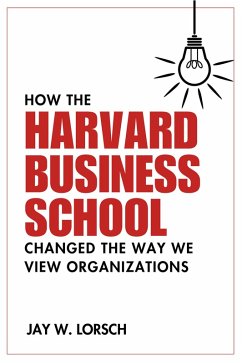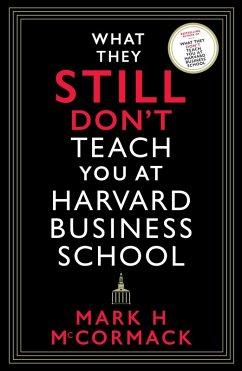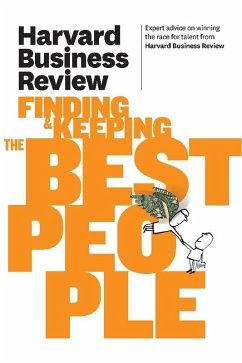
How the Harvard Business School Changed the Way We View Organizations (eBook, ePUB)

PAYBACK Punkte
5 °P sammeln!
Listen, observe, test-these three words lie at the heart of a powerful method for businesses' transformation.Behind this method is a deceptively simple idea: managers and management scholars must first take the pulse of a real business, get its case history, diagnose its problems, and only then solve them. Invented by the scholars who launched Harvard Business School, this medical model will still cure companies today.Damningly, during the last thirty years business schools embraced the presumptions of economists, game theorists, and other calculators of abstraction. The solving of real-world,...
Listen, observe, test-these three words lie at the heart of a powerful method for businesses' transformation.
Behind this method is a deceptively simple idea: managers and management scholars must first take the pulse of a real business, get its case history, diagnose its problems, and only then solve them. Invented by the scholars who launched Harvard Business School, this medical model will still cure companies today.
Damningly, during the last thirty years business schools embraced the presumptions of economists, game theorists, and other calculators of abstraction. The solving of real-world, real-time problems has atrophied and stagnated. In this book, renowned scholar and emeritus professor Jay W. Lorsch marshals evidence, history, and insights from his more than fifty-year career at Harvard Business School to make the case for a return to the medical model-the practices of listening, observing, and testing in which the fields of human relations and organizational behavior are rooted.
By telling the history of the development of his field, Lorsch demonstrates how the medical model emerged in the years before World War II and for decades helped managers, management scholars, and consultants diagnose and solve the problems besetting companies large and small. Explaining the case studies that define the practice, he discusses how the model has been refined and reapplied by later generations and how it can continue to address issues such as diversity, leadership, competition, and optimal corporate board structures.
Behind this method is a deceptively simple idea: managers and management scholars must first take the pulse of a real business, get its case history, diagnose its problems, and only then solve them. Invented by the scholars who launched Harvard Business School, this medical model will still cure companies today.
Damningly, during the last thirty years business schools embraced the presumptions of economists, game theorists, and other calculators of abstraction. The solving of real-world, real-time problems has atrophied and stagnated. In this book, renowned scholar and emeritus professor Jay W. Lorsch marshals evidence, history, and insights from his more than fifty-year career at Harvard Business School to make the case for a return to the medical model-the practices of listening, observing, and testing in which the fields of human relations and organizational behavior are rooted.
By telling the history of the development of his field, Lorsch demonstrates how the medical model emerged in the years before World War II and for decades helped managers, management scholars, and consultants diagnose and solve the problems besetting companies large and small. Explaining the case studies that define the practice, he discusses how the model has been refined and reapplied by later generations and how it can continue to address issues such as diversity, leadership, competition, and optimal corporate board structures.
Dieser Download kann aus rechtlichen Gründen nur mit Rechnungsadresse in A, D ausgeliefert werden.













